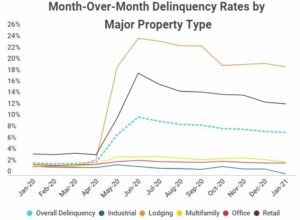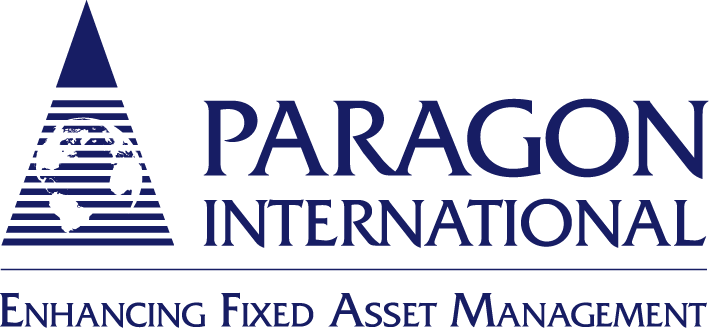One of the fallouts of the COVID pandemic is the influx of distressed commercial properties for sale. This is especially true for the industries hardest hit by the resulting lock downs and ensuing recession, such as hospitality and retail.
People had to shelter in place and non-essential businesses were forced to close their doors. Many owners of hotels, retail centers, office buildings, multi-family apartment buildings, industrial centers and other commercial properties are still reeling from the lost revenue. Although commercial mortgage loan delinquency rates are declining, they’re still far from normal, especially lodging and retail, as illustrated in the below graph.*
 As investors look to purchase these distressed commercial properties, or any real estate, they must allocate the transaction price between non-depreciable assets such as land, and depreciable assets such as buildings, land improvements, and personal property.
As investors look to purchase these distressed commercial properties, or any real estate, they must allocate the transaction price between non-depreciable assets such as land, and depreciable assets such as buildings, land improvements, and personal property.
The allocation must be based upon the appraised Fair Market Value In Use of all the assets acquired, balanced to the final purchase price. Proper determination of Fair Values satisfies stringent financial reporting and audit regulations. This establishes a supportable basis for internal book depreciation.
Not All Purchase Price Allocations Are Created Equal
To maximize the tax benefits of a purchase price allocation, it is important to keep in mind that different types of commercial properties have different types of depreciable fixed assets. An engineering-based appraisal will consider those differences. Here are just a few examples for different types of properties:
- Hotels – Guestroom, back office, ballroom and meeting room furniture and equipment.
- Retail Centers – Land improvements; tenant improvements for occupied and vacant spaces.
- Multi-Family Housing – Security systems, swimming pool and playground equipment.
- Office Buildings – Lobby and common area furniture and equipment; tenant improvements.
- Industrial Centers – Fixed mechanical, electrical and HVAC systems; dock door systems.
Using an engineering-based appraisal to determine Fair Market Value In Use of acquired assets complies with allocation of purchase price requirements. This maximizes Federal and State income tax depreciation, which is deducted from taxable income. Income taxes are reduced and cash flow is increased, which accelerates investors’ return on investment (ROI).
Paragon’s comprehensive Purchase Price Allocation services complement those of buyers’ accounting firms. Our engineering-based cost segregation methodology separates the purchase price into different categories – building, personal property, land and land improvements – to maximize and accelerate your tax depreciation.
Have you recently purchased a commercial building? Contact us to get a no obligation estimate of your potential purchase price allocation tax savings.
*Source: Trepp




